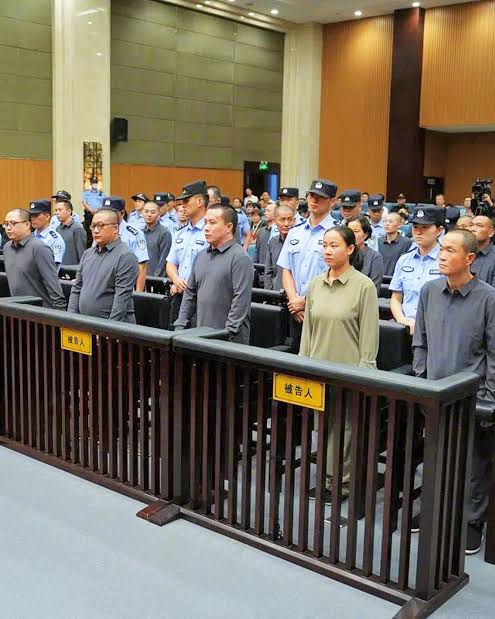A Chinese court has handed down death sentences to 11 members of the Ming crime family, a notorious syndicate accused of running a billion dollar empire of online scams, gambling, and human trafficking out of Myanmar’s lawless border region. The ruling, delivered Monday by the Wenzhou Intermediate People’s Court in Zhejiang Province, marks a major escalation in China’s push to dismantle mafia-like operations exploiting its southwestern frontier.

The Ming family, one of northern Myanmar’s “four families,” operated out of Kokang, a semi-autonomous region near the Chinese border. Led by Ming Xuechang, who also held a seat in Myanmar’s state parliament, the syndicate allegedly ran compounds like the infamous Crouching Tiger Villa, employing up to 10,000 people to churn out sophisticated internet fraud, prostitution, and drug schemes. The group’s cash flow turned Kokang’s capital, Laukkaing, from a sleepy border town into a gaudy casino hub, fueled by illicit profits.

The court’s statement detailed gruesome crimes, including the murder of 10 workers who resisted or tried to flee the compounds. In one chilling October 2023 incident, four people were gunned down during a worker transfer after a tip-off about an impending police raid. Ming Xuechang took his own life in custody after China issued arrest warrants in November 2023, offering rewards of $14,000 to $70,000 for his family’s capture. His son Ming Guoping, a leader in the junta-aligned Kokang Border Guard Force, daughter Ming Julan, and granddaughter Ming Zhenzhen were among those arrested.

Five other defendants received two-year suspended death sentences, while 12 more face prison terms ranging from five to 24 years. The court said the Mings, since 2015, leveraged their clout in Kokang to build a sprawling network of telecom fraud, casinos, drug trafficking, and prostitution, backed by armed muscle and financial patrons.

Myanmar’s scam industry, centered in places like Kokang and Myawaddy’s KK Park, thrives in the chaos of the country’s ongoing civil war, with corrupt officials and militias shielding operations. The U.S. Institute of Peace estimates Southeast Asian crime groups rake in over $43 billion annually from scams alone. China, fed up with cross-border crime targeting its citizens, ramped up pressure on Myanmar’s junta in 2023, culminating in a rebel offensive that ousted the military from Laukkaing. Beijing likely gave tacit approval, analysts say, as rebels cited scam crackdowns as a motive.

Since the raids, over 53,000 Chinese nationals many trafficked victims have been repatriated from Myanmar’s scam compounds. But the fight’s far from over. Experts warn the industry is evolving, with syndicates using crypto and AI to stay ahead of the law. Despite high-profile busts, the lure of quick cash in Myanmar’s ungoverned corners keeps the scams alive, leaving Beijing’s patience with the junta wearing thin.




